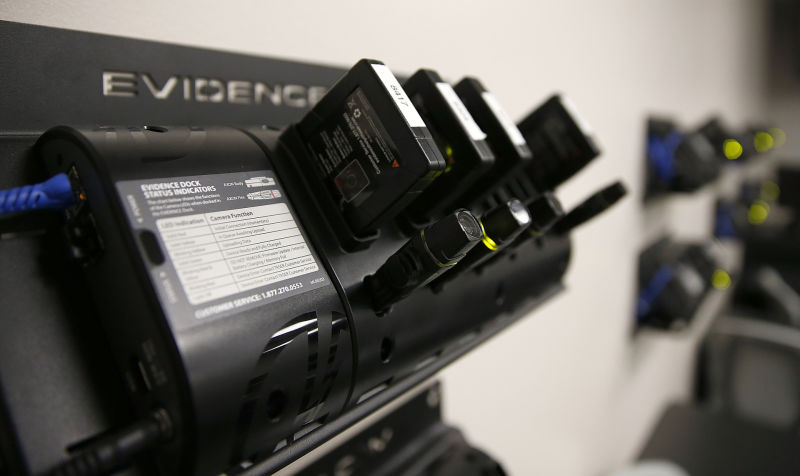Kansas-based Digital Ally, which contracts locally with the Richmond Police Department, filed a federal lawsuit against Taser last month alleging patent infringement. The company amended its lawsuit in early February, alleging commercial bribery, unfair trade practices and unlawful business practices.
The meat of those allegations: Taser is unlawfully inducing local purchasing authorities to "treat or deem Taser as the 'sole source' of body cams, without any consideration of the competing products offered by Digital and others," according to the lawsuit.
Heckman said Digital Ally tried to bid for San Francisco's contract but was "immediately knocked out of the running." City purchasers told Digital Ally, Heckman said, that the company did not have enough large contracts in major cities to compete in San Francisco.
"We've got over 80,000 units in the field," Heckman said. "We're the No.2 provider of body-worn cameras in the U.S. market, and we don't understand the reasoning here."
The "intent to award" announcement comes as the city is likely to consider deploying a better-known Taser International product -- electronic stun guns best known by the company's name.
The Dec. 2 fatal police shooting of Mario Woods by a group of San Francisco police officers catapulted Taser stun guns, for a fifth time, back into the laps of city policymakers.
The shooting was captured on bystander cellphone videos -- not SFPD body cameras because they have yet to be deployed -- and it sent a shock wave through San Francisco. Changes in the wake of the Woods shooting include a federal Department of Justice review and revisions to police use-of-force policies, which Police Chief Greg Suhr and officers union head Martin Halloran have said should include the deployment of Taser stun guns.
"The experts are in agreement that Tasers are a valuable tool that will save lives," Halloran wrote in an op-ed published in the San Francisco Chronicle Sunday. "They will not work all of the time. But, based on what we know, if our officers had Tasers on the night of the Bayview [Mario Woods] shooting, that incident would likely have ended without the loss of a human life. That’s why we are launching a proposal to make Tasers available to all police officers in San Francisco."
The San Francisco Office of Contract Administration did not respond to repeated inquiries Tuesday for supporting documentation regarding its "intent to award" announcement.
Taser Executive Vice President Josh Isner said his company is excited by San Francisco's announcement.
Isner said he couldn't say much beyond that because any contract between San Francisco and Taser has yet to be finalized, but he said the city's intent to award proved Taser's products can compete on an even playing field.
"There were a lot of questions around the initial sole source," Isner said of the abandoned San Francisco pilot program. "In San Francisco, just like a lot of deployments, they've gone to RFP, everyone's had the ability to submit a proposal, and we've received the intent to award."
As for Digital Ally's lawsuit, Isner said it is "unfortunate."
"We're certainly preparing to litigate that in the courtroom," he said.

